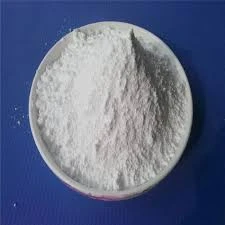Water Treatment for Closed Loop Hydronic Systems
Closed loop hydronic systems are essential components in modern heating and cooling applications, utilizing water or a water-glycol mixture as a heat transfer medium. These systems are efficient and effective; however, they require rigorous water treatment protocols to ensure optimal performance and longevity. In this article, we will explore the significance of water treatment in closed loop hydronic systems, the potential issues arising from poor water quality, and the recommended treatment methods to maintain system integrity.
Importance of Water Treatment
The primary purpose of water treatment in closed loop hydronic systems is to prevent the formation of scaling, corrosion, and biological growth. These issues can severely impact the efficiency and lifespan of the system, leading to costly repairs and operational failures. By ensuring that the water used in the system is clean and treated adequately, operators can maintain optimal flow rates, heat transfer efficiency, and overall system performance.
Potential Issues from Poor Water Quality
1. Corrosion One of the most common problems in hydronic systems is corrosion, which can occur in metal components due to oxygen and other aggressive agents present in untreated water. Corrosion can lead to leaks, decreased heat transfer efficiency, and ultimately, system failure.
2. Scaling Mineral deposits, such as calcium carbonate and magnesium, can precipitate on heat exchangers and other surfaces within the system. This scaling creates insulating barriers that restrict heat transfer, resulting in decreased efficiency and increased energy costs.
3. Biological Growth Bacteria and algae can proliferate in stagnant water, leading to biofilms that can clog pipes and further reduce system performance. Biological contamination can also lead to unpleasant odors and health concerns if not addressed promptly.
4. pH Imbalance The pH level of water can significantly influence corrosion rates and the solubility of minerals. Water that is too acidic can accelerate corrosion, while alkaline water may promote scaling.
Recommended Water Treatment Methods
water treatment for closed loop hydronic systems

To mitigate the issues mentioned above, a combination of methods is recommended to treat the water in closed loop hydronic systems effectively.
1. Filtration Employing mechanical filters helps to remove particulate matter, debris, and sediment from the water. Regular maintenance of filters is crucial to ensure that they operate effectively and prevent clogging.
2. Chemical Treatment Depending on the specific conditions of the system, various chemical treatments can be employed. Inhibitors can be added to prevent corrosion, while scale control agents can reduce the risk of mineral deposits. Moreover, biocides can be used to control biological growth effectively.
3. Water Softening For systems prone to scaling due to high mineral content, water softening techniques can be useful. Ion exchange units can reduce calcium and magnesium levels, thus minimizing the risk of deposit formation.
4. Regular Water Testing Routine analysis of water quality is essential for identifying potential issues early on. Parameters such as pH, conductivity, dissolved oxygen, and inhibitor levels should be monitored regularly.
5. System Flushing Periodic flushing of the system helps to remove accumulated debris, sediments, and chemical residues. This process should be planned during maintenance schedules to avoid disrupting system performance.
6. Closed Loop Sealing Ensuring that the closed loop system is properly sealed can minimize the introduction of air and contaminants. Leaks should be addressed immediately, and corresponding maintenance checks should become a standard procedure.
Conclusion
Effective water treatment is crucial for the longevity and efficiency of closed loop hydronic systems. By implementing proper filtration, chemical treatment, water softening, and regular maintenance practices, operators can prevent corrosion, scaling, and biological fouling. In doing so, they not only enhance the system's performance but also extend its operational lifespan, ensuring that hydronic systems continue to function reliably and efficiently for years to come.

